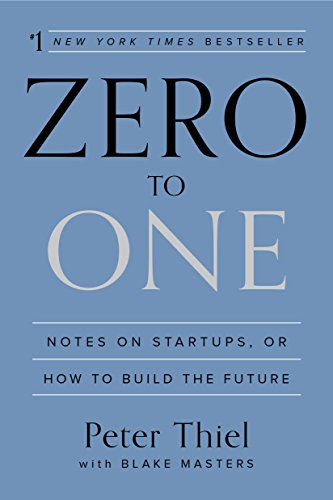Zero to One: Notes on Startups, or How to Build the Future by Peter Thiel was a quick read and a worthwhile one for any entrepreneur. I also think it would be a good read for any investors. At times while reading the book I found I was learning as much about an investing philosophy as about building a business.
Innovation
To innovate you need look at the past, question ideas, rethink business. Secrets of nature (undiscovered aspects of the physical world) and secrets about people (things they don’t know about themselves or hide) are what great businesses are built on. Look for those where no one else is looking.
The most valuable businesses of coming decades will be built by entrepreneurs who seek to empower people rather than try to make them obsolete.
When you have your idea you need to focus on it as long as you think it will be valuable long term. Long term thinking is important for all aspects of your business.
Your product should not be an undifferentiated commodity. It is very difficult to create a monopoly around a commodity. If you are creating a product exactly like or very similar to an existing product your product should be ten times better than what is currently available.
Once you have a product that creates value you need to start capturing that value. Creating a company is the next step.
Startups
Startups operate on the principle that you need to work with other people to get stuff done, but you also need to stay small enough so that you actually can.
The most crucial decision you’ll make for your startup is who to found it with. You should start your company with people that you already know otherwise you’re rolling the dice on whether it will be a good fit. Thiel does not believe that you can fix a startup that is messed up at its foundation.
Monopolies
Your startup should start with a small market. Niche down until you are in a market that is small enough that you are able to dominate it. Large markets are very competitive.
The perfect target market for a startup is a small group of particular people concentrated together and served by few or no competitors.
Every business should aim to be a monopoly. Companies fail because they can’t escape the competition. Monopolies result in profits for the creator. Competition results in no profits for anybody.
Every monopoly is unique, but they usually share some combination of the following characteristics: proprietary technology, network effects, economies of scale, and branding.
Become a monopoly in your small market first before expanding into adjacent markets. And when you do expand avoid competition as much as possible.
You will not have a successful company if you have a great product with no distribution channel. Even if you have a commodity product sales and distribution can create a monopoly. Sales is hard work and finding a great distribution channel is important.
The Future
Our task today is to find singular ways to create the new things that will make the future not just different, but better—to go from 0 to 1. The essential first step is to think for yourself. Only by seeing our world anew, as fresh and strange as it was to the ancients who saw it first, can we both re-create it and preserve it for the future.

